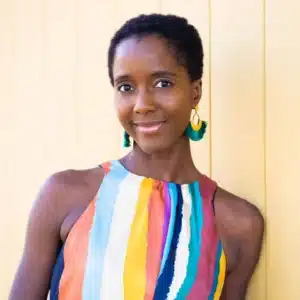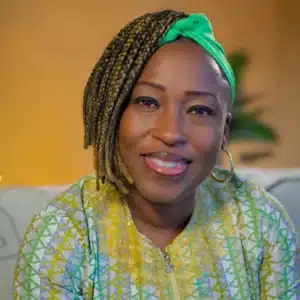How to Plan a Memorable Black History Month Event
Planning black history month events that truly resonate with your audience starts with understanding what you want to achieve. Whether you’re organising your first event or looking to improve on previous years, this guide will walk you through everything you need to know to create memorable and meaningful celebrations that honour Black heritage while engaging your team or community.
What is Black History Month and Why Does It Matter?
Black History Month Origins and Purpose
Black history month origins trace back to 1926, when historian Carter G. Woodson established “Negro History Week” in the United States to highlight Black contributions often omitted from mainstream education. The UK adopted Black History Month in 1987, thanks to Ghanaian analyst Akyaaba Addai-Sebo, who recognised the need to celebrate Black British history and achievements.
Today, Black History Month serves multiple purposes, from filling gaps in historical narratives to celebrating Black heritage and achievements. It promotes inclusion while challenging stereotypes, and demonstrates organisational commitment to genuine diversity and equity.
Why Organisations Must Engage Meaningfully
For modern organisations, Black History Month events aren’t optional; they’re essential for building inclusive workplace cultures, recognising Black colleagues’ contributions, and educating teams about systemic issues. These events strengthen brand reputation as an inclusive employer while fostering authentic dialogue about race and equality.
Essential Elements of Successful Black History Month Events
Setting Clear Goals and Themes
The first step in planning your event is deciding what you want to accomplish. Before you start thinking about logistics, take time to define your event’s purpose. You might want to focus on educational goals like raising awareness of Black historical contributions, addressing knowledge gaps about Black British history, or exploring contemporary issues facing Black communities.
Cultural goals often work well too. For example, celebrating Black heritage and achievements, showcasing diverse Black voices and perspectives, or creating space for cultural expression and pride. If you’re planning a workplace event, you might have organisational goals such as strengthening your DEI initiatives, improving employee engagement and belonging, or demonstrating your authentic commitment to inclusion.
Each year, there is an official theme for Black History Month. It’s always nice to have a nod to the official theme, but if you’re looking for inspiration or would like to create your own theme, here are some examples that work well:
- “Proud to Be: Celebrating Black Excellence”
- “Stories of Resistance and Resilience”
- “Black Innovation: Past, Present, Future”
- “Saluting Our Sisters: Black Women’s Leadership”
What are some events you can run for Black History Month?
Once you’ve decided on your goals and theme, the next step is choosing the right format for your audience and objectives. Here are the most effective options to consider:
Keynote Presentations
Best for: Large audiences seeking inspiration and education
Duration: 45-90 minutes including Q&A
Benefits: Single powerful voice, clear messaging, maximum impact
Panel Discussions
Best for: Exploring multiple perspectives on complex topics
Duration: 60-90 minutes
Benefits: Diverse viewpoints, dynamic conversation, audience engagement
Interactive Workshops
Best for: Skills development and hands-on learning
Duration: 2-4 hours
Benefits: Practical tools, active participation, deeper understanding
Hybrid Events
Best for: Maximising accessibility and reach if you have people who work remotely or in different locations
Benefits: In-person intimacy with virtual inclusivity, recorded content for future use
Cultural Showcases
Best for: Celebrating heritage through arts and storytelling
Examples: Film screenings, art exhibitions, poetry readings, musical performances
Selecting Black History Month Speakers Who Inspire Change
When you’re selecting speakers for your Black History Month events, remember that the right speaker can transform a good event into an unforgettable experience. Here are some proven voices who bring authenticity and impact to these occasions:

Nova Reid – Anti-Racism Educator and Author
Nova Reid combines personal experience with practical expertise as an anti-racism educator and psychotherapist. Author of “The Good Ally,” she helps organisations understand unconscious bias and develop genuine inclusive practices. Her presentations blend vulnerability with actionable insights, making complex topics accessible to all audiences.

David Olusoga – Historian and Broadcaster
Renowned historian David Olusoga brings Black British history to life through compelling storytelling. His extensive research and media presence, including BBC documentaries, make him ideal for audiences seeking deep historical context. He excels at connecting past events to present-day implications.

Dr. Shola Mos-Shogbamimu – Barrister and Equality Advocate
Dr. Shola Mos-Shogbamimu combines legal expertise with passionate advocacy for equality and women’s rights. As a practicing barrister and political commentator, she brings sharp analysis to discussions about systemic racism and intersectionality. Her enthusiastic speaking style challenges audiences while providing clear paths forward.
Selecting the Perfect Speaker Match
When choosing speakers, consider your audience demographics, whether corporate, educational, or community-focused. Align the speaker’s expertise with your event goals, whether that’s education, inspiration, or action-planning. Think about speaking style preferences: some audiences respond better to conversational approaches while others prefer formal presentations or interactive sessions. Finally, match topic expertise to your needs, whether that’s historical focus, contemporary issues, or personal journey narratives. The Speakers Agency is here to help with this part of the process. We have over 20 years’ experience in matching the right speakers to events and creating a format that best suits the audience.
Common Questions About Black History Month Events
Should Events Be Online, In-Person, or Hybrid?
Hybrid events often provide the best value, combining in-person intimacy with virtual accessibility. This approach accommodates remote workers and global teams, creates recordings for future reference, reduces travel barriers for speakers and attendees, and allows for larger, more diverse audiences. Usually, we can agree for the organisation to have access to the recording for upto 30 days so that employees can watch the session on demand if they aren’t able to attend.
What Topics Should Black History Month Speakers Cover?
Effective presentations typically address historical contributions often overlooked in traditional education, contemporary challenges facing Black communities, and success stories with positive role models. The best speakers also provide practical steps toward greater inclusion while sharing personal journeys and lived experiences that create emotional connections with audiences.
How Do I Make BHM Events Truly Inclusive?
Most importantly, inclusive black history month events require diverse planning committees with Black voices in leadership. They can also be made more inclusive by accessible venues and technology, and multiple engagement options for different participation styles. Cultural sensitivity must be evident in all materials and messaging, with follow-up actions demonstrating genuine commitment beyond the event itself.
How Do I Measure Event Success?
Track both quantitative and qualitative metrics including attendance rates across different demographics and engagement levels, for example during Q&A and discussions. Measure feedback scores on content relevance and speaker effectiveness, follow-up participation in related initiatives, and cultural shifts in organisational conversations about race and inclusion.
Planning Timeline: 8 Weeks to Success
8 weeks before: Define goals, secure budget approval, book venue
6 weeks before: Confirm speaker, finalise event format and theme
4 weeks before: Launch internal promotion, send calendar invites
2 weeks before: Send reminder communications, prepare technical setup
1 week before: Final logistics check, share speaker information
Day of: Execute event plan, capture content for future use (if you plan on producing content, flag this with The Speakers Agency at the time of booking and we can ensure this is reflected in the booking contract where appropriate)
1 week after: Share recordings, gather feedback, plan follow-up actions
How to Make Your Black History Month Events Count
The difference between a memorable event and a transformative one often comes down to speaker selection. Working with The Speakers Agency connects you with voices that inspire action.
Ready to plan a powerful Black History Month event that resonates long after it ends? Contact The Speakers Agency today for personalised black history month speaker recommendations that match your audience, goals, and budget.
Our expert team will help you create an event that celebrates Black heritage while advancing your DEI objectives with authenticity and impact.







